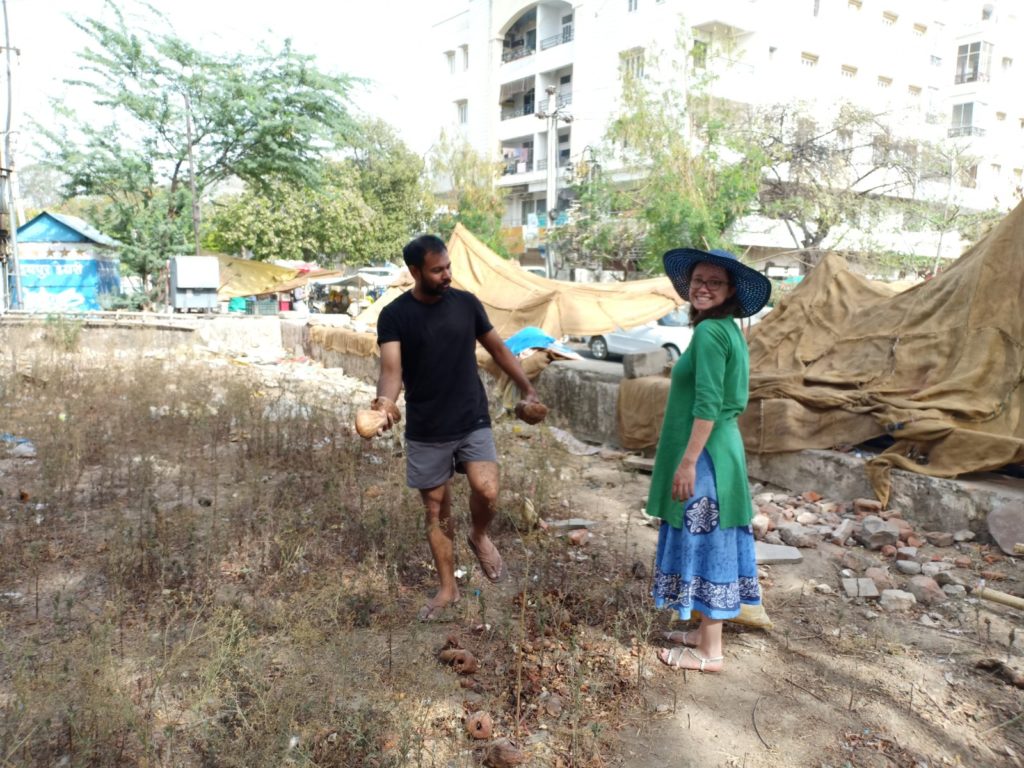
How did you find the Metta Center for Nonviolence, and what inspires you about our work?
I heard about the Metta Center through East Point Peace Academy in Spring 2018. Kazu Haga, its founder, advertised the Center’s 6-month online course to certified Kingian nonviolent conflict resolution students, and I jumped on the opportunity to learn more about nonviolence. I found the content of both Metta’s 6-month course and website striking with clarity, pragmatism, hopefulness, and vision, which are four qualities that I look for in my work.
What does nonviolence mean to you, and what are some ways/areas you are working on applying it in your daily life?
To me, nonviolence is an all-encompassing, life-honoring way of life. Within that frame, nonviolence practice is a constant invitation to dissipate the common feeling of separation that one can experience with oneself, others, and the outside world. Separation is illusion. Interbeing is reality. We depend on each other, and when I hurt another, I hurt myself. Practicing nonviolence is a constant reminder to come back to and actualize this reality, despite natural hardships and mental delusions
My main practices are mindfulness and compassion meditations, mindful nonviolent communication, as well as engaged activism. I believe that first establishing a state of calm, loving presence within myself allows me to understand more clearly how to respond in each moment. Does this person need my attention? Does my body need some rest and care? Can I approach this conflict with a well-intentioned heart? How and where can I sign petitions, get a socially-engaged job, and volunteer for a cause I care about? Without a clearly well-intentioned attitude, I realize that I cannot be nonviolent. All of my questions and hesitations find answers in an open, present heart. Only from there can I truly serve in nonviolent activist spaces, such as the yet-to-be-named nonviolent activist network that I joined last year and focuses on both racial and climate justice. I also eat vegetarian, use as little fossil fuel as possible (no car, lit candles at night…), and practice nonviolent communication as taught by Oren Jay Sofer.
What is your favorite constructive program out there today and/or historically?
Swaraj University, an alternative higher education institution in Udaipur, India. Swaraj University allows students to develop ecological sustainability and social justice portfolios based on their own experiences, and it gives them space for self-designed learning and green entrepreneurship. The university delivers no degrees. At the end of their time at Swaraj University, students find jobs in companies that recognize them as whole beings, not only degree-holders.
You helped lead and co-create the Metta Center’s “Nonviolence & the New Humanity” course. How would you describe this online training?
This five-part course explores the concept of the New Story and its applications at personal (Personal Power) and societal (Economy, Justice, Terrorism) levels. Participants are invited to watch short and fun animations, then reflect on their own objections, as well as new ideas and invitations to action. Finally, participants learn mindful listening, which is key to nonviolence.
What do you hope the course will accomplish?
I hope the course will give a framework to nonviolence for people who need it, regardless of experience with the topic. I also hope that participants will come together to reflect on the questions and invitations to action that the course offers. Finally, I would love for teachers to use the curriculum in their classrooms, with younger people. Through all of this, I hope that more people will realize that a different social paradigm can inform and inspire our own existence and the existence of the upcoming generations.
What did you learn while creating the course?
While creating the course, I acquired a better understanding of where nonviolence and the New Story are most urgently needed—in personal transformation, economics, justice, and international conflict resolution. I used this framework to understand the areas of impact of the projects that I contributed to at the Gandhi Ashram and its NGO, Manav Sadhna.
What’s your favorite quote about nonviolence?
“We can never do great things, only small things with great love.” – Mother Theresa.
What’s next in nonviolence education for you? More courses? More research? Science of nonviolence?
More experiences on the ground! In India, the managers of the Gandhi Ashram and its NGO told me: “Learn first, study after,” and “Be more, think less.” I think that I am at a stage of my journey where I need to further experience nonviolence as an embodied practice within activist spaces. That is why I am going back to India for two months (September and October), and coming back to the Bay Area in November. Within the next year, I hope to spend more time with my greatest nonviolent mentors and inspirations at the Gandhi Ashram, Manav Sadhna, the Metta Center, and East Point Peace Academy. Concurrently, I also plan to dive into and promote the Metta Center’s Science of Nonviolence website.
Gandhi said, “My life is my message.” What do you think about that?
No other sentence summarizes better the intentions, attitude, aspirations, and spirit of a nonviolence practitioner. Preaching nonviolent values without intentionally practicing them is hypocrisy. Thus, a careful examination and reduction of the discrepancy between our words and actions in each moment is key. We can never change others, only show them the way to their inner well of peace and love through our own integrity, moment by moment. Therefore, within my current unfolding of life, I also believe that my way of being is my message.








